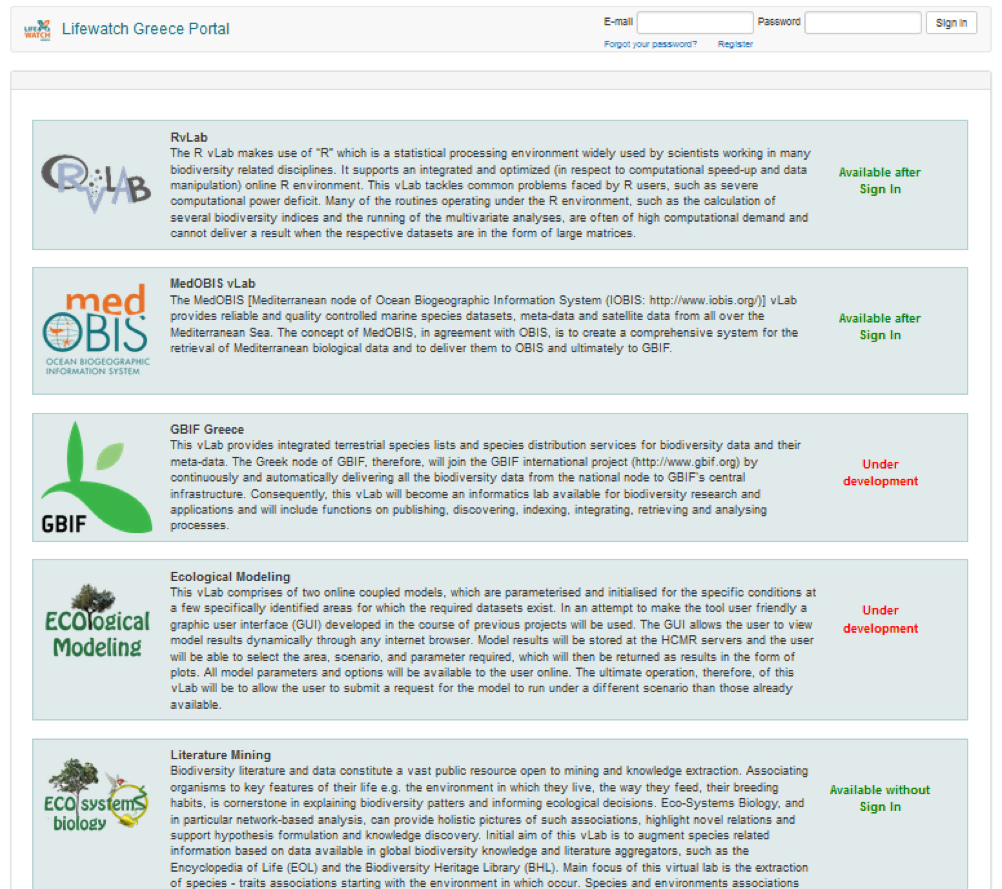MedOBIS is the Mediterranean node of Ocean Biogeographic Information System. It consists of a relational postgreSQl database for cleaning and storing the datasets, the MedOBIS IPT (Integrated Publishing Toolkit) which is available for sharing data and metadata and Medobis viewer(vLab) as a geodata tool, developed by open layers for visualization. It also provides WMS and WFS services through a Geoserver which is connected to the visualization tool and to the database. OBIS and GBIF harvests all the datasets through IPT.
MedOBIS currently (2021) hosts 54 datasets, covering the period 1844 to 2017, with over 77,000 occurrence records accompanied with taxonomical, trait, geographical and environmental information. Login is required to access the vLab; while the IPT is open to any user.
